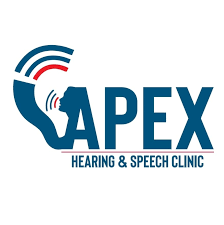+918048074069

This is your website preview.
Currently it only shows your basic business info. Start adding relevant business details such as description, images and products or services to gain your customers attention by using Boost 360 android app / iOS App / web portal.
Description
DIAGNOSTIC HEARING TEST IN VADODARA A diagnostic hearing evaluation is the first step in determining your hearing capability. If you have a hearing loss, it will detail the extent, type, and specifics of your particular hearing loss. The diagnostic hearing evaluation will be performed by an audiologist. The diagnostic hearing evaluation consists of a variety of tests to determine the unique aspects of your hearing loss, as well as the level at which you can detect and understand speech. This evaluation can be conducted on people of any age, from new born infants to seniors. Pure-tone test Speech test Middle ear test Auditory brainstem response Otoacoustic emissions Pure-tone test A pure-tone test determines what range of pitches an individual can hear. The test will pick out the faintest tones a person can hear at multiple pitches, or frequency. The test is not painful and shouldn’t cause anxiety for the patient. During the test, the patient will wear headphones. A sound will be played through the headphones. Should the patient hear the sound, they will respond by raising a hand, pressing a button or saying, “yes.” Each ear will be tested individually in order to get the most accurate results. Speech test During a speech test, the patient will be asked to listen to conversation in quiet and noisy environments. To determine an individual’s speech reception threshold, the audiologist will record word recognition or the ability to repeat words back. Middle ear test To determine how the middle ear is functioning, an audiologist will get measurements such as tympanometry, acoustic reflex measures and static acoustic measures. During a middle ear test, the audiologist pushes air pressure into the canal, causing the eardrum to vibrate back and forth. Acoustic reflex measures provide information regarding the location of the hearing issue. Acoustic reflex is the contraction of the middle ear when introduced to a loud sound. Testing for acoustic measure enables an audiologist to identify a perforated eardrum and check the opening of the ear’s ventilation tubes. Auditory brainstem response The auditory brainstem response test gives an audiologist data about the inner ear and brain pathways needed for hearing. During the test, electrodes are placed on the head to record brain wave activity. Otoacoustic emissions Otoacoustic emissions, or sounds given off by the inner ear when the cochlea is stimulated by sound, are measured to narrow down types of hearing loss. These emissions can be measured by inserting a small probe into the ear canal. The probe measures the sounds produced by the vibration of the outer hair cells, which occurs when the cochlea is stimulated. HEARING LOSS CHECK FOR CHILD AND ADULTS About 50% of children with hearing loss do not have any of the above risk factors. Therefore it is important to observe the behaviour of your child in response to their environment: If you answer YES to one or more of the following your child should be assessed by an Audiologist. New born (Birth to 6 months) Does not startle, move, or cry to loud unexpected sounds Does not awaken to loud noises Cannot be soothed by voice alone Does not turn his/her head in the direction of your voice by 4-6 months Young Infant (6 through 12 months) Does not point to familiar persons or objects when asked By 12 months does not understand simple phrases such as "wave bye-bye", "clap hands" by listening alone Infant (13 months through 2 years) Does not startle, move, or cry to loud unexpected sounds Does not awaken to loud noises Cannot be soothed by voice alone Does not turn his/her head in the direction of your voice by 4-6 months Child (3 years and older) Does not startle, move, or cry to loud unexpected sounds Does not awaken to loud noises Cannot be soothed by voice alone Does not turn his/her head in the direction of your voice by 4-6 months Adults Hearing Loss can develop at any time. Sudden changes in hearing are usually quite obvious, however, many hearing problems develop slowly over time and other people may be aware of your hearing difficulties before you are. If you answer YES to one or more of the following you should be assessed by an Audiologist Do you often need to ask people to repeat what they have said? Do you typically have trouble understanding a conversation or mishear people in a group or in the presence of background noise? Does it seem that people are regularly not speaking clearly or are ‘mumbling’? When watching television do you need to set the volume higher than other people to hear comfortably? Do you become frustrated or even totally avoid some social occasions because there is too much noise or you cannot keep up with the conversation?

